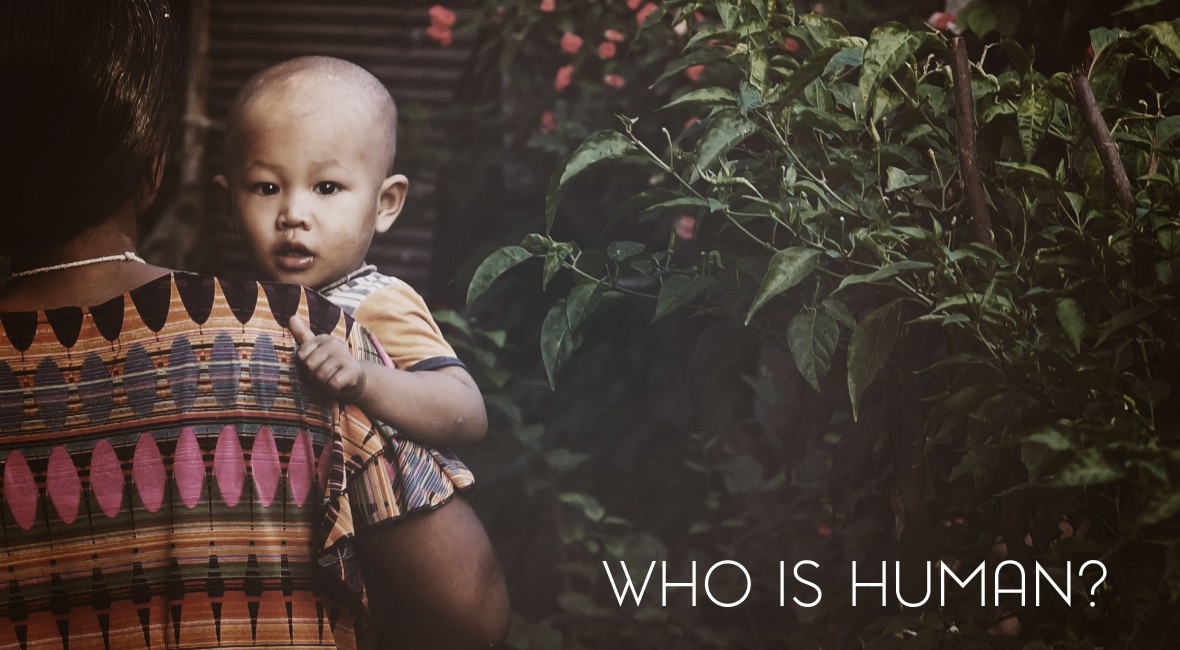Defining the Humanity of Others

In September, 2015, an effort was made through social media to challenge the stigma of abortion through the use of the hashtag #shoutyourabortion. Women who had had an abortion were encouraged to speak out, be proud, and reject the stigma of guilt and shame placed on them by society. I confess that the brazenness of many of these abortion supporters makes me angry. But I believe in the slow play of the kingdom of God. I believe that one day, at the resurrection, these women will meet the person they chose to terminate. I sincerely hope and pray that on that day they can embrace, be reconciled together through Christ, enjoy fellowship with one another in the eternal, healing new creation of God. For it is only then and there that all manner of things shall be well.
Humans have a long, sad history of deciding who is and isn’t fully human.
During this year’s Super Bowl, Doritos aired an ad of an unborn child with an unusually advanced appetite for their delicious chips. This ad was criticized in a tweet by NARAL, an organization committed to advocating for abortion rights, as “humanizing fetuses.” (Their exact words.) Defining the humanity of the fetus really is the heart of the abortion debate, though it is still shocking to see it put so bluntly, as though “humanizing fetuses” were either objectionable, immoral, or unnatural.
I confess that I do not understand the intellectual universe in which a fetus, in full possession of unique and unrepeatable human DNA, the clear product of human parents, developing inside of a human female, visible through ultrasound technology, can be considered anything other than human. It is abundantly clear from scientific inquiry that, upon conception, a new human life is thrust into creation, albeit in a form that may not yet resemble the humans we see around us each day. In the article linked above, Frederica Mathewes-Green states this well:
While I do not understand how anyone can deny the humanity of an unborn child, I can, unfortunately, perfectly understand the moral universe in which the humanity of the weak is defined by the powerful as incomplete or insufficient, and that they are therefore subjected to mistreatment, abuse, and forceful death without consequence or justice. We’ve been here before, America. (Have we ever left?) Insofar as white, powerful Americans did not accept Africans as fully human, the transatlantic slave trade thrived, and the institution of slavery became embedded in our American way of life. We call this refusal to acknowledge the humanity of Africans racism, and it is the greatest of all America’s sins, clearly and unanimously condemned today. It was only when powerful whites began to acknowledge the full humanity of Africans that the diabolical practice of our institutionalized, race-based slavery began to crumble. It is precisely because of our rejection of the African slave trade that we should have the moral fortitude and precedent to reject abortion.
Humans have a long, sad history of deciding who is and isn't fully human. A just society accepts the humanity of all. #ShoutYourAbortion
— Andrew Holt (@Andrew_W_Holt) September 22, 2015
Of course, America is not the only nation or people to presume to define the humanity of others as less than their own, and thereby morally justify the extermination of the other. Whenever humans call into question the full humanity of other humans, we do so in order to justify our hatred, self-conceit, violence, and will to power. If someone is not a human, we reason, then they can be killed without moral or legal consequence. As with the teacher of the law who asked of Jesus, “Who is my neighbor,” our impulse is not to refrain from killing, but to ask (and answer narrowly), “Who is human?”
Whenever humans call into question the full humanity of other humans, we do so in order to justify our hatred, self-conceit, violence, and will to power.
But as with race, desire is a poor ethic, an awful answer to the question, “Who is human?” The Christian answer to the question is the same as Christ’s answer to the question, “Who is my neighbor?” It is, to put it simply, “Be a human.” When we find ourselves narrowly defining the humanity of others we lose touch with the most humane part of humanity, and instead become a twisted, evil version of ourselves, bent ever-inward, caught in the violent cycle of self-conceit and the struggle for power. Violence, after all, is the inevitable result of narrowing the definition of humanity to exclude others. History bears this out, infallibly.
God’s image is carried by the zygote as profoundly as it is borne by the healthy woman in her prime.
To be human is no vile thing, for our being, though steeped in sin, has been redeemed by the incarnation of Jesus Christ. By becoming a man, from conception through death and on to resurrection, Jesus has restored the dignity and glory of humanity. He is remaking the image of God in us, broken as it is by sin.
But beyond this, every man and woman – and every unborn child – is a nascent king or queen of creation, created by God to rule the cosmos by his side, and to be betrothed eternally to Jesus Christ. Tying together the first and final chapters of Scripture, we see that our divine calling infinitely surpasses our human endeavors as the sun outshines a child’s nightlight. Not all will reach this calling, sadly, but the road is open to all who are made in the image of God. Let us not, then, enact violence upon our fellow vice-regents; rather let us bend our desires toward the good of the divine-image-bearing future kings and queens, and thereby toward the good of all creation.

